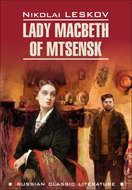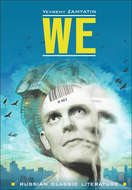Kitobni o'qish: «Oblomov / Обломов. Книга для чтения на английском языке»
© КАРО, 2020
Все права защищены
Part one
1
Ilya Ilyich Oblomov was lying in bed one morning in his flat in Gorokhovaya Street in one of those large houses which have as many inhabitants as a country town.
He was a man of about thirty-two or three, of medium height and pleasant appearance, with dark grey eyes, but with a total absence of any definite idea, any concentration, in his features. Thoughts promenaded freely all over his face, fluttered about in his eyes, reposed on his half-parted lips, concealed themselves in the furrows of his brow, and then vanished completely – and it was at such moments that an expression of serene unconcern spread all over his face. This unconcern passed from his face into the contours of his body and even into the folds of his dressing-gown.
Occasionally a sombre look of something like fatigue or boredom crept into his eyes; but neither fatigue nor boredom could banish for a moment the mildness which was the predominant and fundamental expression not only of his face but of his whole soul, so serenely and unashamedly reflected in his eyes, his smile and every movement of his head and hands. A cold and superficial observer, casting a passing glance at Oblomov, would have said: «A good-natured fellow, I’ll be bound, a simpleton!» A more thoughtful and sympathetic man, after a long scrutiny of his face, would have walked away with a smile, full of pleasant thoughts.
Oblomov’s complexion was not ruddy, nor dark, nor particularly pale, but rather nondescript, or seemed to be so because he had grown so fat and flabby – which was unusual for a man of his age – whether because of lack of exercise, or fresh air, or both, it is difficult to say. Generally speaking, his body, if one were to judge by the dull and excessively white colour of his neck, his small, chubby hands, and his soft shoulders, seemed too effeminate for a man.
His movements, too, even when he was excited, were kept in check by a certain kind of mildness and laziness which was not without its own touch of gracefulness. If his mind was troubled, his eyes were clouded over, lines appeared on his forehead, and he was plunged into doubt, sadness, and fear; but his anxiety seldom took the form of any definite idea and still more seldom was it transformed into a decision. All his anxiety resolved itself into a sigh and dissolved into apathy or drowsiness.
How well Oblomov’s indoor clothes went with the calm features of his countenance and his effeminate body! He wore a dressing-gown of Persian cloth – a real oriental dressing-gown, without the slightest hint of Europe, without tassels, without velvet trimmings, and so capacious that he could wrap it round him twice. The sleeves, in true Asiatic fashion, got wider and wider from the shoulders to the hands. Though this dressing- gown had lost its original freshness and here and there exchanged its natural sheen for one acquired by years of faithful service, it still preserved the brilliance of its oriental colour, and the material was as strong as ever.
The dressing-gown had a vast number of inestimable qualities in Oblomov’s eyes: it was soft and flexible, it was so light that he did not feel its weight, and it obeyed the least movement of his body like a devoted slave.
Oblomov never wore a tie or a waistcoat at home because he liked to feel unhampered and free. He wore long, soft, wide slippers; when he put his feet on the floor as he got out of bed, he invariably stepped into them without looking.
Lying down was not for Oblomov a necessity, as it is for a sick man or for a man who is sleepy; or a matter of chance, as it is for a man who is tired; or a pleasure, as it is for a lazy man: it was his normal condition. When he was at home – and he was almost always at home – he lay down all the time, and always in the same room, the room in which we have found him and which served him as a bedroom, study, and reception-room. He had three more rooms, but he seldom looked into them, except perhaps in the morning, and that, too, not every day, but only when his man-servant swept his study – which did not happen every day. In those rooms the furniture was covered with dust sheets and the curtains were drawn.
The room in which Oblomov was lying seemed at first glance to be splendidly furnished. It had a mahogany bureau, two sofas, upholstered in a silk material, and a beautiful screen embroidered with birds and fruits never to be found in nature. It had silk curtains, rugs, a number of pictures, bronze, porcelain, and all sorts of pretty knick-knacks. But an experienced person of good taste casting a cursory glance round the room would at once detect a desire to keep up appearances somehow or other, since appearances had to be kept up. Oblomov, of course, had nothing else in mind when he furnished his study. A man of refined taste would never have been satisfied with those clumsy and heavy mahogany chairs and those rickety book-stands. The back of one of the sofas had dropped and the mahogany veneer had come unstuck in some places.
The pictures, vases, and knick-knacks were equally shoddy.
The owner himself, however, was so utterly indifferent to the furniture of his study that he seemed to be wondering who on earth could have dumped all that junk there. It was Oblomov’s indifference to his own property, and perhaps even still more the utter indifference shown by his servant Zakhar, that made the study look, on closer inspection, so neglected and untidy.
Dust-covered cobwebs were festooned round the pictures on the walls; instead of reflecting the objects in the room, the mirrors were more like tablets which might be used for writing memoranda on in the dust. The rugs were covered in stains. A towel had been left on the sofa; almost every morning a dirty plate, with a salt-cellar and a bare bone from the previous night’s supper, could be seen on the table, which was strewn with crumbs. If it had not been for this plate and a freshly smoked pipe by the bed, or the owner of the flat himself lying in it, one might have thought that no one lived there – everything was so dusty and faded and void of all living traces of human habitation. It is true there were two or three open books and a newspaper on the book-stands, an inkwell with pens on the bureau; but the open pages had turned yellow and were covered with dust – it was clear that they had been left like that for a long, long time; the newspaper bore last year’s date, and if one were to dip a pen in the inkwell, a startled fly was as likely as not to come buzzing out of it.
Oblomov, contrary to his custom, had woken up very early – about eight o’clock. He looked very worried about something. The expression of his face kept changing continually from that of alarm to one of anguish and vexation. It was clear that he was in the throes of some inner struggle, and his reason had not vet come to his aid.
What had happened was that on the previous evening Oblomov had received a disagreeable letter from the bailiff of his estate. The sort of disagreeable news a bailiff usually sends can be easily imagined: bad harvest, arrears of taxes due from the peasants, falling income, and so on. Though the bailiff had written identical letters to his master the year before and the year before that, this last letter had the same strong effect as any other unpleasant and unexpected piece of news.
The whole thing was a great nuisance: he had to think of raising some money and of taking certain steps. Still, it is only fair to do justice to the care Oblomov bestowed on his affairs. Already, after receiving his bailiff’s first unpleasant letter several years before, he had begun devising a plan for all sorts of changes and improvements in the management of his estate. According to his plan, various economic, administrative, and other measures would have to be introduced. But it was far from being thoroughly thought out, and the bailiff’s disagreeable letters went on arriving every year, arousing in him the desire to do something and, consequently, disturbing his peace of mind. Oblomov, indeed, realized very well that he would have to do something decisive before his plan was worked out.
As soon as he woke he made up his mind to get up, wash, and, after he had had breakfast, think things over thoroughly, come to some sort of decision, put it down on paper and, generally, make a good job of it. He lay for half an hour, tormented by this decision; but afterwards it occurred to him that he would have plenty of time to do it after breakfast, which he could have in bed as usual, particularly as there was nothing to prevent him from thinking while lying down.
That was what he did. After breakfast he sat up and nearly got out of bed; glancing at his slippers, he even lowered one foot from the bed, but immediately put it back again. It struck half-past nine. Oblomov gave a start.
«What am I doing?» he said aloud in a vexed voice. «This is awful! I must set to work! If I go on like this – „Zakhar!“» he shouted.
From the room separated from Oblomov’s study only by a narrow passage came what sounded like the growl of a watchdog on a chain, followed by the noise of a pair of legs which had jumped off from somewhere. That was Zakhar, who had jumped off the stove where he usually sat dozing.
An elderly man, wearing a grey waistcoat with brass buttons and a grey coat with a hole under the arm from which a bit of his shirt protruded, came into the room; his head was bald as a billiard ball, but his side-whiskers, light brown and streaked with grey, were so enormous and so thick that each of them could have made three beards.
Zakhar had made no attempt to change either the appearance which the good Lord had bestowed upon him or the clothes he had worn in the country. His clothes were made after the pattern he had brought from his village. He liked the grey coat and waistcoat, for they reminded him vaguely of the livery he used to wear in the good old days when he accompanied his late master and mistress to church or on some visit; and to his mind this livery was the only evidence of the dignity of the Oblomov family. There was nothing else to remind the old man of his prosperous and peaceful life in his old master’s house in the wilds of the country. His old master and mistress were dead, the family portraits had been left behind in the old country house, where, no doubt, they were lying somewhere in the attic; the stories which told of the old way of life and the important position occupied by the family were no longer heard and only lived in the memory of a few old people who had remained on the estate. This was why his grey coat was so dear to Zakhar. He saw in it a faint reflection of past glory, of which he was also reminded by something in Oblomov’s face and manner which recalled his parents, Zakhar’s old master and mistress, and by his whims, at which the servant grumbled both to himself and aloud, but which he respected for all that as a manifestation of his master’s will and his master’s rights. Without these whims he would, somehow, not have felt that he had a master over him; without them nothing would have brought back to him the memory of his youth, the country they had left so long ago, and the tales of the ancient family seat, preserved in the memory of the old servants and nursemaids and passed on from one generation to another.
The Oblomov family had once been rich and famous in its part of the country, but afterwards, goodness only knows why, it had grown poorer, lost all its influence, and, at last, was imperceptibly lost among the newer families of the landed gentry. Only the grey-haired servants of the family kept alive and handed on the faithful memories of the past which they treasured as if they were something sacred.
That was why Zakhar was so fond of his grey coat. Perhaps he valued his side-whiskers, too, because as a child he had seen so many old servants who wore that ancient and aristocratic adornment.
Oblomov, absorbed in his thoughts, did not notice Zakhar for a long time. Zakhar stood before him in silence. At last he coughed.
«What do you want?» Oblomov asked.
«But you called me, sir, didn’t you?»
«Called you? Whatever did I call you for? Can’t remember!» he replied, stretching himself. «You’d better go back to your room and I’ll try and remember».
Zakhar went out of the room, and Oblomov went on lying in bed and thinking of the cursed letter.
A quarter of an hour passed.
«Well, I’ve been lying long enough», he said. «I must get up. But wait – let me read the bailiff’s letter carefully once more and then I’ll get up. Zakhar!»
Again the same jump and louder growling. Zakhar came in, and Oblomov again sank into thought. Zakhar stood for a couple of minutes looking at his master disapprovingly and slightly sideways, and at last walked towards the door.
«Where are you off to?» Oblomov asked suddenly.
«You say nothing, sir, so why should I stand here for nothing?» Zakhar said in a hoarse whisper, having lost his voice, so he claimed, riding to hounds with the old master, when a strong gust of wind had blown into his throat.
He was standing in the middle of the room, half turned away from Oblomov, at whom he went on looking sideways.
«Have you lost the use of your legs, that you can’t stand a little longer? You see I am worried – so just wait! Haven’t you been lying down long enough in your room? Find the letter I received from the bailiff yesterday. Where did you put it?»
«What letter? I’ve seen no letter, sir», Zakhar said.
«But you took it from the postman yourself – such a dirty letter!»
«How should I know where you put it?» said Zakhar, tapping the papers and the various articles on the table.
«You never know anything! Look there – in the waste-paper basket! Or perhaps it has dropped behind the sofa? Look at the back of that sofa – hasn’t it been repaired yet? Why don’t you send for the carpenter and have it repaired? It was you who broke it, wasn’t it? You never think of anything!»
«It wasn’t me that broke it, sir», replied Zakhar. «It broke by itself. Can’t last for ever, can it? It’s bound to get broken some day».
Oblomov did not think it necessary to contest the point.
«Haven’t you found it yet?» he merely asked.
«Here are some letters, sir».
«That’s not it».
«Well, sir, there ain’t no more», Zakhar said.
«Very well, you can go», Oblomov said impatiently. «I’ll look for it myself when I get up».
Zakhar went back to his room, but he was just about to lay his hands on the stove in order to jump on to it, when he again heard a hurried call:
«Zakhar! Zakhar!»
«Oh Lord!» Zakhar growled, as he went into the study again. «What a trial he is! I wish I was dead!
„What is it now, sir?“ he asked, holding on to the door of the study with one hand, and, to show his extreme disapproval, looking at Oblomov at such an angle that he could see his master only out of the corner of his eye, while his master could only see one of his vast side-whiskers, out of which, it would seem, two or three birds might fly at any moment.
„My handkerchief, and be quick about it! You might have thought of it yourself – you never see anything!“ Oblomov observed sternly.
Zakhar showed no sign of any particular displeasure or surprise at his master’s command and reproach, no doubt finding both quite natural.
„How should I know where your handkerchief is?“ he grumbled, walking round the room and feeling every chair with his hand, though one could see there was nothing lying there.
„You’re always losing things“, he observed, opening the drawing-room door to see if the handkerchief was there.
„Where are you going? Look for it here! I haven’t been there since the day before yesterday. And hurry up, will you?“ Oblomov said.
„Where is that handkerchief? Can’t see it anywhere!“ said Zakhar, throwing up his hands and looking round the room. „Why, there it is“, he suddenly hissed angrily. „It’s under you, sir! There’s one end of it sticking out! You lie on your handkerchief and then you ask for it!“
And, without waiting for a reply, Zakhar was about to leave the room. Oblomov felt a little disconcerted by his own mistake. But he quickly found another reason for putting the blame on Zakhar.
„Is this the way you keep the place clean and tidy? Look at the dust, the dirt – good Lord! There – have a look in the corners – you don’t do anything!“
Don’t I, sir?» Zakhar said in a hurt voice. «As if I wasn’t trying. Working my fingers to the bone, I am. Dusting and sweeping nearly every day».
He pointed to the middle of the floor and the table at which Oblomov had dinner.
«Look there, sir, there», he said; «everything’s swept up and tidy as for a wedding. What more do you want?»
«And what’s this?» Oblomov interrupted him, pointing to the walls and the ceiling. «And this! And this!»
He pointed to the towel left on the sofa since the day before and to a plate with a piece of bread on it, forgotten on the table.
«Well, sir, I daresay I might take this away», said Zakhar, picking up the plate with a condescending air.
«Only that? And what about the dust on the walls – the cobwebs?» Oblomov said, pointing to the walls.
«I usually sweep the walls before Easter, sir. I clean the icons then, too, and take off the cobwebs».
«And the books and pictures – when do you dust them?»
«The books and pictures, sir, I do before Christmas: Anisya and I turn out all the book-cases then. How do you expect me to clean the place now? You’re at home all day, aren’t you?»
«I sometimes go to the theatre or visit friends – that’s when you ought to do it».
«Can’t do things at night, can I, sir?»
Oblomov gave him a reproachful look, shook his head, and sighed. Zakhar cast an indifferent glance out of the window and sighed, too. The master seemed to think: «Well, my dear chap, you’re even more of an Oblomov than I am». And Zakhar, quite likely, thought to himself: «Fiddlesticks! All you’re good at is to use high-sounding and aggravating words – you don’t care a fig for the dust and the cobwebs!»
«Don’t you realize», said Oblomov, «that moths thrive on dust? And sometimes I can even see a bug on the wall!»
«I’ve got fleas as well, sir», Zakhar remarked unconcernedly.
«You think that’s all right, do you?» Oblomov said. «Why, it’s vermin!»
Zakhar grinned all over his face, so that his eyebrows and side-whiskers parted, and a red flush spread all over his face.
«Isn’t my fault, sir, if there are bugs in the world», he said with naive surprise. «I didn’t invent them, did I?»
«It’s because of the dirt», Oblomov interrupted him. «What nonsense you do talk!»
«I didn’t invent dirt, either».
«You’ve got mice running about in your room at night – I can hear them».
«I didn’t invent the mice, either. There are lots of these creatures everywhere, sir: mice and moths and bugs».
«How is it other people have neither moths nor bugs?»
Zakhar’s face expressed incredulity, or rather a calm certainty that this never happened.
«I’ve got lots of everything, sir», he said obstinately. «You can’t expect me to see to every bug. I can’t crawl into their cracks, can I?»
He seemed to be thinking to himself: «And what would sleep be like without a bug?»
«Sweep up the dirt out of the corners – then there won’t be any», Oblomov instructed him.
«Sweep it up to-day and there’ll be plenty of it to-morrow», said Zakhar.
«No, there won’t», his master interrupted him. «There shouldn’t be».
«There will be», the servant insisted; «I know, sir».
«Well, if there is, you must sweep it up again».
«What, sir? Sweep out all the corners every day?» Zakhar asked. «Why, what sort of life would that be? I’d rather be dead!»
«But why are other people’s rooms clean?» Oblomov retorted. «Look at the piano-tuner’s opposite: it’s a pleasure to look at his place, and he has only one maid».
«And where, sir, do you expect Germans to get dirt from?» Zakhar objected suddenly. «See how they live! The whole family gnaw a bone all the week. A coat passes from the father to the son and from the son back again to the father. His wife and daughters wear short frocks: their legs stick out under them like geese… Where are they to get dirt from? They’re not like us, with stacks of worn-out clothes lying in wardrobes for years. They don’t get a whole corner full of crusts of bread during the winter. They don’t waste a crust, they don’t! They make them into rusks and have them with their beer!»
Zakhar spat through his teeth at the thought of such a niggardly existence.
«It’s no good your talking!» replied Oblomov. «You’d better tidy up the rooms».
«Well, sir, I’d be glad to tidy up sometimes, but you won’t let me».
«There he goes again! It’s I who won’t let him, if you please!»
«Of course it’s you, sir. You’re always at home: how can I tidy the place with you here? Go out for a whole day and I’ll get it nice and tidy».
«Good Lord! what next? Go out indeed! You’d better go back to your room».
«But really, sir», Zakhar insisted. «Why don’t you go out today, and Anisya and me will get everything ship-shape. Though, mind you, sir, we shan’t be able to do everything by ourselves – not the two of us: we should have to get some charwomen to come and wash…»
«Good Lord! what an idea – charwomen! Go on, back to your room», said Oblomov.
He was sorry he had started the conversation with Zakhar. He kept forgetting that as soon as he touched on that delicate subject he got involved in endless trouble. Oblomov would have liked to have his rooms clean, but he could not help wishing that it would all happen somehow of itself, without any fuss; but the moment Zakhar was asked to dust, scrub, and so on, he always made a fuss. Every time it was mentioned he began proving that it would mean a tremendous lot of trouble, knowing very well that the very thought of it terrified his master.
Zakhar left the room and Oblomov sank into thought. A few minutes later it again struck the half-hour.
«Good heavens», Oblomov said almost in dismay, «it’ll soon be eleven o’clock, and I haven’t got up and washed! Zakhar! Zakhar!»
«Dear, oh dear! What now?» Zakhar’s voice came from the passage followed by the familiar sound of a jump.
«Is my water ready?» Oblomov asked.
«Been ready for hours», Zakhar replied. «Why don’t you get up, sir?»
«Why didn’t you tell me it was ready? I’d have got up long ago. Go now, I’ll follow you presently. I have some work to do. I’ll sit down and write».
Zakhar went out, but a minute later returned with a greasy notebook covered with writing and scraps of paper.
«If you’re going to write, sir, you might as well check these accounts – they have to be paid».
«What accounts? What has to be paid?» Oblomov asked, looking displeased.
«The butcher, the greengrocer, the laundress, and the baker, sir. They are all asking for money».
«All they think of is money!» Oblomov grumbled. «And why don’t you give me a few bills at a time? Why do you produce them all at once?»
«But every time I do, sir, you tell me to go – it’s always tomorrow, to-morrow».
«Well, can’t we put it off till to-morrow now?»
«No, sir. They keep on pestering me, sir. They won’t give us any credit. To-day’s the first of the month».
«Oh dear!» said Oblomov dejectedly. «A fresh worry! Well, what are you standing there for? Put them on the table. I’ll get up presently, wash, and have a look at them. So my water is ready, is it?»
«It’s ready, sir», said Zakhar.
«All right, now», – he groaned and was about to raise himself in his bed in order to get up.
«I forgot to tell you, sir», Zakhar began. «Just a few hours ago, while you were still asleep, the house agent sent the porter to say that we must move – they want the flat».
«Well, what about it? If they want it, we shall of course move. What are you pestering me for? It’s the third time you’ve told me».
«They’re pestering me too, sir».
«Tell them we’re going to move».
«They say, sir, you’ve been promising to move for the last month but you still don’t move. They’re threatening to tell the police».
«Let them!» Oblomov said resolutely. «We’ll move as soon as the weather gets warmer – in three weeks or so».
«In three weeks, sir? Why, sir, the agent says the workmen are coming in in a fortnight’s time. They’re going to break the whole place down. You’ll have to move to-morrow or the day after – that’s what he says, sir!»
«Does he? He’s in too much of a hurry! He wants us to move at once, does he? Don’t you dare even to mention the flat to me again. I’ve told you once before and you’re at it again. Take care!»
«But what am I to do, sir?» Zakhar asked.
«What are you to do? So that’s the way you want to wriggle out of your responsibilities?» replied Oblomov. «You’re asking me! What do I care? So long as you don’t bother me, you can make any arrangements you like, provided we haven’t got to move out of this flat! You won’t do anything for your master, will you?»
«But what can I do, sir?» – Zakhar began, speaking in a soft, hoarse voice. «It’s not my house, is it? How can we refuse to go, if we’re being chucked out? Now, if it was my house, sir, I’d have been only too glad…»
«Can’t you persuade them somehow? Tell them we’ve been here for years, always paid the rent regularly…»
«I told them that, sir».
«Oh? Well, what did they say?»
«Why, sir, what do you think they said? They just keep on saying we must move because they have to do all sorts of alterations. You see, sir, they want to convert this flat and the doctor’s next door into one big flat in time for the landlord’s son’s wedding».
«Goodness me, how do you like that?» Oblomov said with vexation. «To think that there are such donkeys who want to get married!»
He turned over on his back.
«Why don’t you write to the landlord, sir?» said Zakhar. «Perhaps he wouldn’t bother you then, but tell the workmen to break down the flat next door first».
Zakhar pointed somewhere to the right.
«Oh, very well, I’ll write as soon as I get up. You’d better go back to your room now, and I’ll think it over», he added. «It seems that you can’t do anything and I shall have to arrange this stupid affair myself too».
Zakhar went out of the room and Oblomov began thinking. But he could not make up his mind what he was to think of first: the bailiff’s letter, or moving out of the flat, or looking through the accounts. He was lost in a flood of worldly cares, and remained lying in bed, turning over from side to side. At times sudden cries were heard in the room: «Oh dear, oh dear! You can’t run away from life – it gets at you everywhere!»
It is difficult to say how long he would have remained in this state of indecision, if there had not been a ring at the front door.
«There’s someone at the door already», said Oblomov, wrapping his dressing-gown round him, «and I haven’t got up yet. Oh, it’s disgraceful! I wonder who it can be so early?»
And without attempting to get up, he looked curiously at the door.








